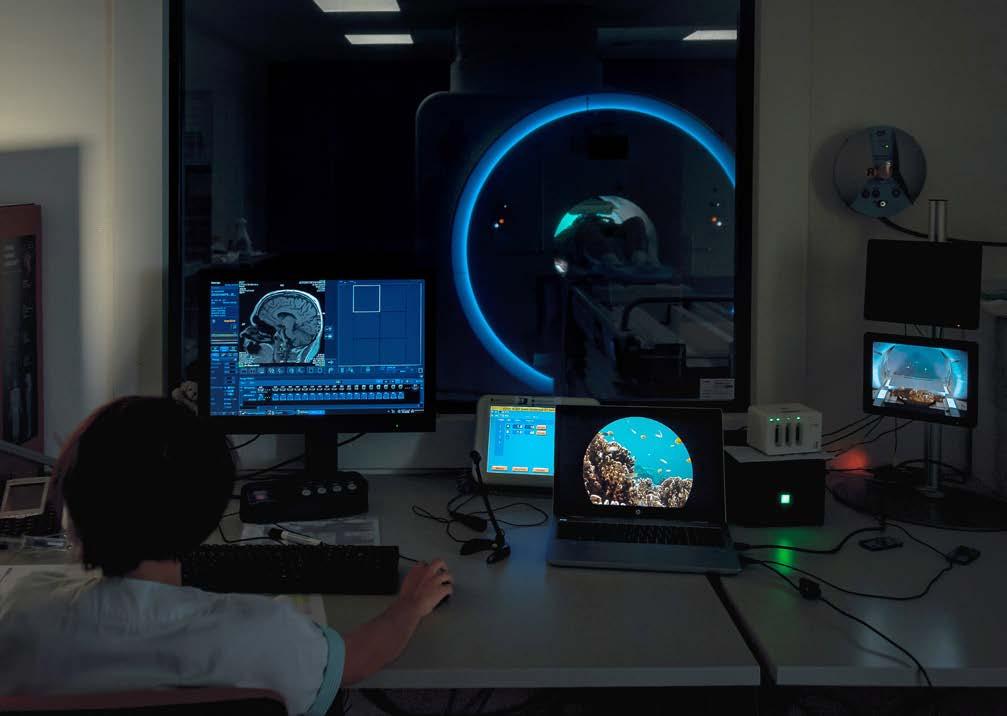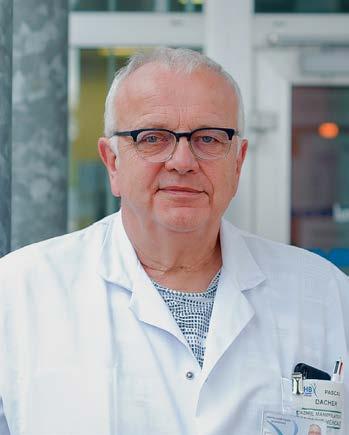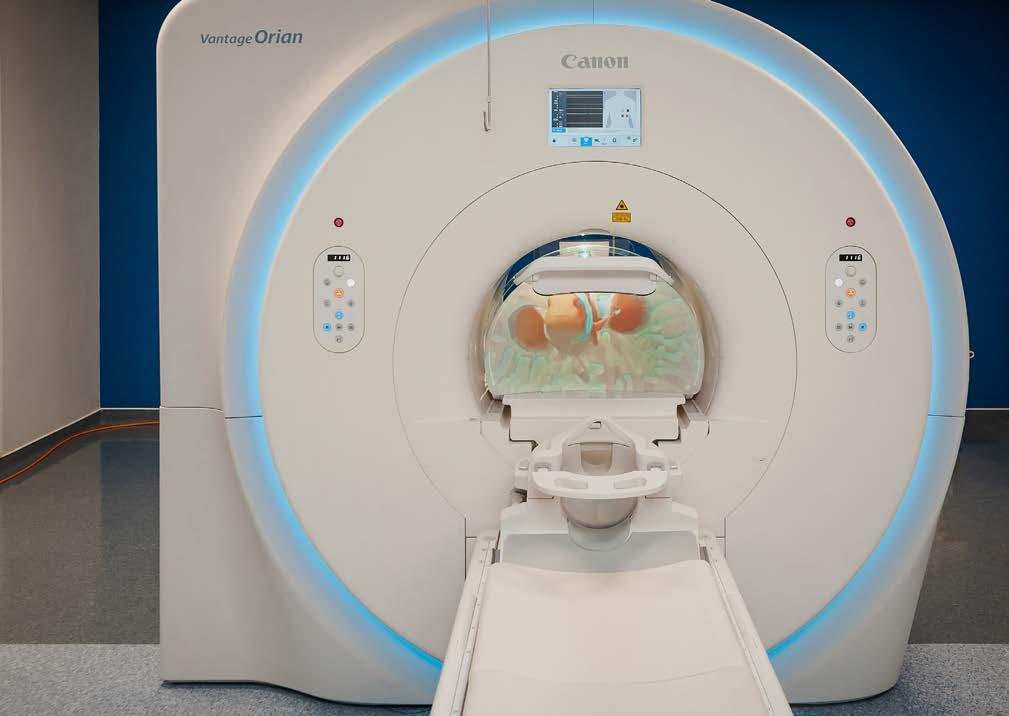
3 minute read
The MR Theatre Offers a Greater Sense of Escape and Improves Imaging Quality
From left to right: Mr. Pascal Dacher (Health Manager), Ms. Emilie Montfort, Ms. Virginie Boulanger, Mr. Cyril Dadier (Radiographers), GIE IRM Medical Imaging Center Beauvais (Centre d'Imagerie Médicale du Beauvaisis), France.
Canon Medical's groundbreaking MR technology, offers greater ease and comfort to patients undergoing MRI examinations. Pascal Dacher discusses the benefits this technology has had on its patients at the GIE IRM Medical Imaging Center Beauvais (Centre d'Imagerie Médicale du Beauvaisis), France, where the equipment has recently been installed.
Advertisement
The Medical Imaging Center in Beauvais, northern France, treats all MR requests for all types of clinical applications except cardiology. “We perform osteopathy, neurology, oncology, women’s imaging, and pediatrics examinations,” Mr. Dacher said.
A main challenge in clinical practice is to secure imaging diagnosis, particularly in anxious, claustrophobic and pediatric patients, who are traditionally more difficult to scan. To tackle this issue, the team has recently installed two Canon Medical Vantage Orian large aperture MR systems, one of which is equipped with the MR theatre.
A new MR experience
It has been shown that performing examinations in relaxed, cooperative patients improves image quality and diagnosis. Feeling at ease helps patients lie still during the examination.

Control room of the Vantage Orian at GIE IRM Medical Imaging Center Beauvais (Centre d'Imagerie Médicale du Beauvaisis), France.
The MR theatre, which projects peaceful, virtual and immersive reality inside the bore, helps distract patients from the ongoing examination – this reduces the stressful and claustrophobic effects of MR.
One of the main reasons that motivated Mr. Dacher and his team to purchase Canon Medical's technology, was the improved benefits it would bring to the patients: “Our goal, is to support all our patients as best as possible during imaging examinations. By offering them a new MR experience, we can now accommodate a higher number of claustrophobic and pediatric patients. We believe that the MR theatre can be a relaxing and distracting feature that will facilitate the better management of these patients,' he said.
The GIE IRM Medical Imaging Center is known for taking innovative approaches to improving patient comfort. The team notably installed France’s first Titan system in March 2009 and was one of the first imaging centers to offer patients MR examinations using a wide-bore scanner.
“We have always paid attention to our patients’ comfort. We aspire at setting ourselves apart from other imaging centers, by offering innovative and exclusive comfort technologies. Our best ambassadors are our patients. We are confident that the MR theatre will help us further improve our patients’ comfort,” he said.


Canon Medical's Vantage Orian with MR theatre at GIE IRM Medical Imaging Center Beauvais (Centre d'Imagerie Médicale du Beauvaisis), France.
Left: Mr. Pascal Dacher, Health Manager at the GIE IRM Medical Imaging Center Beauvais (Centre d'Imagerie Médicale du Beauvaisis), France. Right: Patrice Coudray, Product Manager MR, Canon Medical Systems France.
High acceptance and better results
The team can perform all examinations on any patients with the MR theatre. However, the benefits have been more apparent for claustrophobic and paediatrics patients.
The patient reaction to the MR theatre has been overwhelmingly positive. Patients now feel less confined, comforted and at ease. While Mr Dacher and his team have no doubts about the benefit of this technology, the instant response has exceeded their expectations.
“We were overwhelmed by the immediate impact this has had on our patients. The feedback from our patients is that they have had a more pleasant experience and there is a greater sense of escape. There is less sense of loneliness in the examination room and the film that is being projected offers an immersive and realistic distraction,” he said.

Oncology patients undergo numerous MR scans as part of their treatment follow-up and have been particularly responsive to this technology.
Staff have also welcomed the positive effect this has had on their image quality, reducing stress and claustrophobia in their patients.
“Patients are more relaxed, more receptive and more cooperative, which greatly facilitates the performance and quality of examinations. The MR theatre helps achieve patient cooperation and reduces movement. This secures better image quality and avoids having to repeat sequences. The patient spends less time in the MR scanner and the examination is generally faster and better,” Mr. Dacher concluded. //










